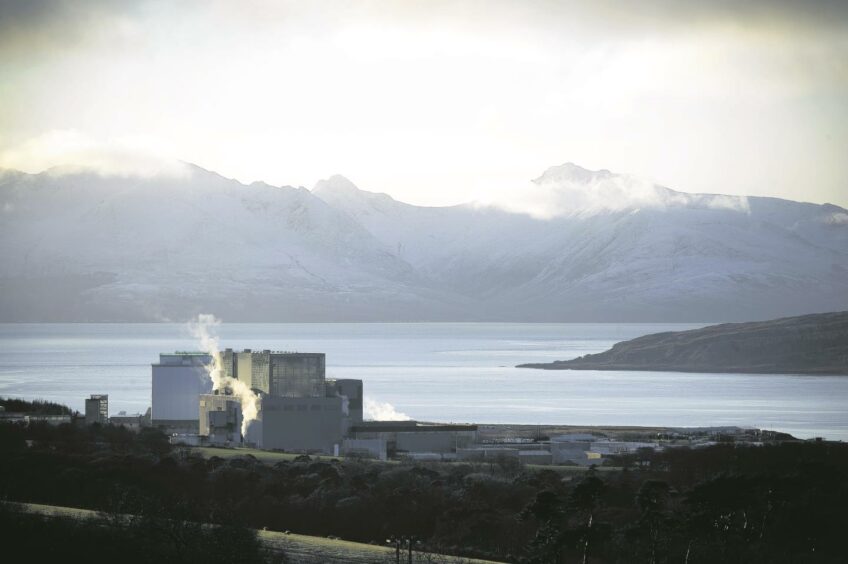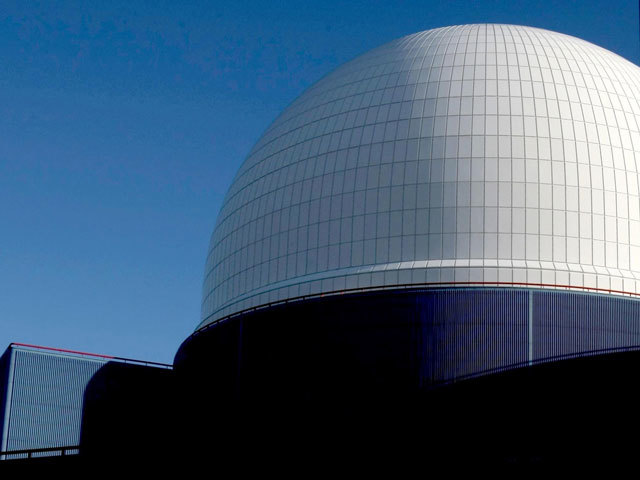
One of Scotland’s two nuclear power plants is being permanently shut down, almost 46 years after it started generating electricity.
Bosses at Hunterston B in North Ayrshire said it had produced enough energy to power every home in Scotland for nearly 31 years since it first came on line.
Station director Paul Forrest said the contribution the plant, near West Kilbride, had made could “not be underestimated” – with the facility providing “stable, well paid jobs” for thousands of people in the area as well as producing almost 300 terawatt hours (TWh) of “zero-carbon electricity”.
The plant was originally scheduled to generate electricity for 25 years, but Mr Forrest said investment in the site – which is run by EDF Energy – meant the lifespan could be extended.
Environmental campaigners, however, said the final shutdown of Hunterston B – which started producing electricity 45 years and 11 months ago – was “inevitable”.
Lang Banks, the director of WWF Scotland, said the plant had become “increasing unreliable”, arguing that growth in renewable energy means nuclear power is no longer required.
However Mr Forrest, who will shut down reactor four at the plant at midday on Friday, insisted: “The contribution Hunterston B power station has made to this country cannot be underestimated.
“As well as providing stable, well paid employment for thousands of people in the North Ayrshire area, it has produced almost 300 TWh of zero-carbon electricity, enough to power every home in Scotland for 31 years.
“It was originally thought Hunterston B would run for 25 years but investment in the plant and the people who work here mean we’ve been able to safely extend that to 46 years.
“This is an incredible achievement and everyone here is proud of what the station has accomplished.
“We will pause to reflect the end of generation but we are looking forward to the future. We don’t just switch off the power station, close the gates and walk away. It will take time to defuel and decommission the site and we will continue to need skilled people to do this.”
EDF said every member of staff who had said they wanted to continue working at Hunterston B had secured a role to help with the defueling – with some staff opting to move to other EDF sites and others deciding to retire.
Hunterston B cost £143 million to build, with work on the plant starting 55 years ago in 1967.
Mr Banks said the “repeated failure to solve the problem of hundreds of cracks in the graphite bricks surrounding the reactor core means the closure of Hunterston B was inevitable”.
He added: “Thankfully Scotland has massively grown its renewable power-generating capacity, which means we’ll no longer need the electricity from this increasingly unreliable nuclear power plant.
“As the expensive and hazardous job of cleaning up the radioactive legacy Hunterston leaves in its wake now begins, Scotland must press on with plans to harness more clean, renewable energy.”
GMB Scotland secretary Louise Gilmour said: “Hunterston B has been a work-horse for Scotland’s energy mix, it’s helped keep the lights on and delivered opportunity and prosperity on the west coast for nearly fifty years.
“The story of the station and its workforce should be celebrated, but Hunterston’s decommission is also a lament over the Scottish Government’s attitude towards nuclear.
“This is a viable low-carbon industry that can help create and sustain the domestic energy production and employment opportunities we need to play our part in confronting the climate crisis.
“This shouldn’t be the beginning of the end for Scotland’s nuclear story – we are still going to need secure electricity supply on the days when the wind doesn’t blow.”
